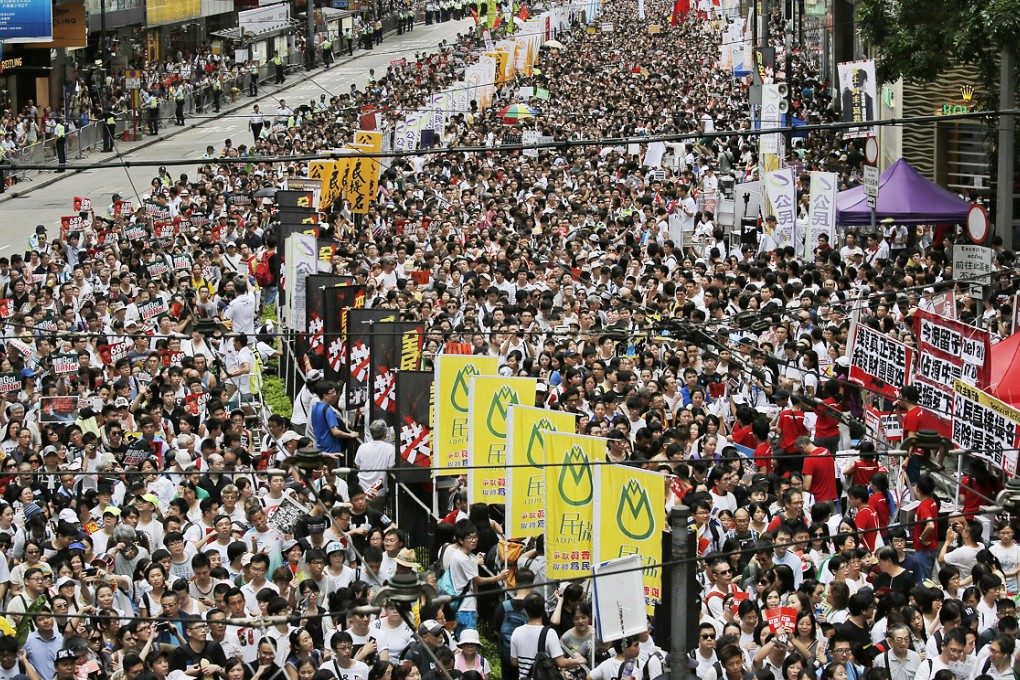Will Hong Kong accept universal suffrage in 2017, in hope of increased democracy later?
Government hoping moderate pan-democrats can be won over before Beijing sets ground rules on 2017 election next month

Government officials hope to use the weight of public opinion and the prospect of a more democratic electoral system in future to press moderate pan-democrats to accept a model for the 2017 chief executive election that does not guarantee a real choice between candidates.
The government is keen to get moderate pan-democrats onside before China’s top legislature next month sets out its framework for electoral reform.
Pan-democrats are worried that the National People’s Congress Standing Committee will require candidates to win a high level of support from a nominating committee stacked with Beijing loyalists. Such a decision would anger those who want the public to be allowed to nominate.
Because any electoral reform package requires a two-thirds majority in the legislature, the government must win over at least five of the 27 pan-democratic lawmakers. And the government believes public backing is crucial, given the high-profile opposition to any kind of compromise from some democracy campaigners.
Chief Secretary Carrie Lam Cheng Yuet-ngor, the official in charge of the government’s reform push, has several times in the past week stressed that the election model used in 2017 would not be final and could be changed in future.

Lam also stressed the results of a survey last month in which 54 per cent of some 1,000 respondents expressed support for a one-man, one-vote system in 2017, even if the nominating process was unsatisfactory.